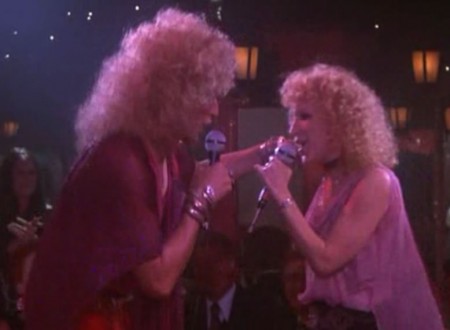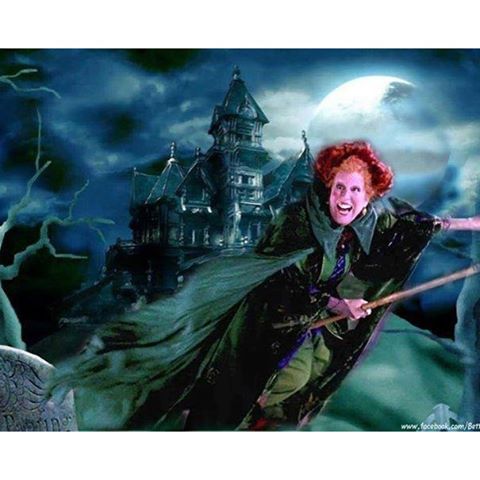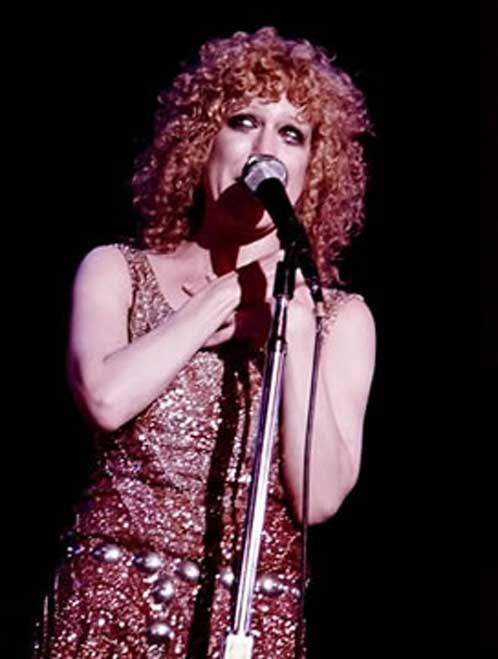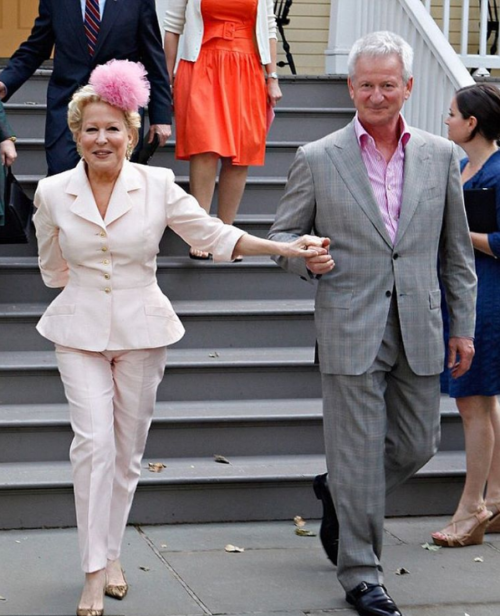Wisconsin State Journal
Energetic Midler moves to movies
Thursday, July 6, 1978
HOLLYWOOD – That most carefully managed of superstars, Bette Midler, is finally making it to the big screen.
She has conquered almost every medium, starting in a gay New York City bathhouse. Her concerts have been socko, her record albums have gone gold, her Broadway revue broke records, and the TV specials have been acclaimed. Now she is starring for 20th Century-Fox in “The Rose.”
The Midler career appears to have been well-calculated, even the intervals to recharge her enormous energies. And even though her performances seem wildly impromptu, there is evidence of strong discipline underneath. The same elements appear in “The Rose.”
“We started out in rehearsals playing the script very cautiously,” explained director Mark Rydell (“The Reivers,” “Cinderella Liberty”). “Then Bette herself pulled up short and said ‘We can’t be too cagey, too cautious; let’s go all the way.’
“It was very brave of her. She has more to lose than anyone. But she elected to play the role full force, and it works. She is absolutely fearless. She played a scene in front of a crowd of people on a New York street in which she cried hysterically. She can be wild, yet she also has the power and dignity. An amazing talent.”
“The Rose” concerns the last eight days in Ihe life of a self-deslructive rock star in 1969. Her f r a n t ic activity involves an ambitious manager, played by Alan Bates, and a Vietnam War deserter, Frederic Forrest.
The other day “The Rose” was f i l m i ng in downtown Los Angeles at a r u n d own basement bar which had been converted into a nightclub f e atur ing female impersonators. There were male replicas of Mae West, Barbra Streisand as well as Rose, the character Midler plays.
The star was unavailable, but the co-producers explained how the project developed. Marvin Worth, who produced “Lenny” about another tragic star, Lenny Bruce, was first struck by the Midler talent f o ur -and a-half-years ago.
“I saw her pe r form at the Troubadour,” the producer-writer recalled. “I went wi th Peter Gruber, who was then head of Columbia Pictures, and I proposed a picture for Bette. It didn’t work out because Columbia was in turmoil at the time.
“Then I thought, ‘Why not have Bette do the life of Janis Joplin?’ I made a deal with 20th Century-Fox, and did a great amount of research on Joplin. But it seemed to me the story should go beyond Joplin.
“I was interested in how certain performers reflect their times. Certainly if Frank Sinatra, Rudy Vallee or Elvis Presley came along now, they wouldn’t be as popular as they were in their own eras. Janis Joplin, Jimi Hendr ix and Jim Morrison were all
products of an hysterical period in our history, and their music reflected it. They also died at the same time.”
Aaron Russo is co-producer of “The Rose,” and he has been Midler’s mentor since 1972.
“I’ve waited six years for a movie for Bette,” he rema rked. “The scripts I read and discarded either lacked quality or weren’t important enough for her. I wanted a role that only Bette Midler could play. In other words, if she couldn’t make the picture, the project would have to be abandoned.
“The toughest one to t u rn down was ‘The Fortune.’ She would have costarred wi th Wa r r en Beatty and J a ck Nicholson with di r e c t ion by Mike Nichols. But I read the script and decided it was a role any number of actresses could play (Stockardl Channing did). I was almost holding my breath u n t il the picture came out. I shouldn’t say this, but I was happy when it failed.”
Russo f i n a l ly selected “The Rose” even t h o u gh the role o f f e rs little chance for Midler to display her comedic talent. Instead, she concentrates on the music, singing songs of the period as well as original numbers in “hard-driving electric-blues rock ‘n’ roll.” Paul Rothscild, who worked w i th The Doors and Joplin, is creating the music.








